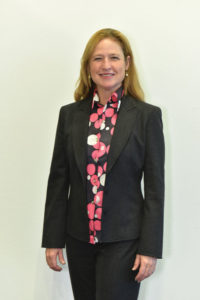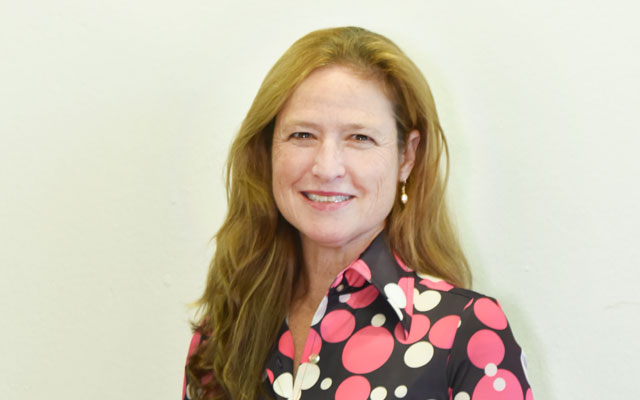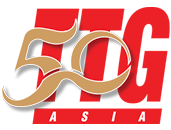Outrigger aims to be 'the premier beachfront resort brand in the world'. Bitsy Kelley, a member of the Kelley family which owns the group, and its vice president-corporate communications, tells how the family thinks and operates.

How different is a ‘premier beachfront resort brand’ from other beach resort brands?
The other big brands have beachfront resorts, mountain resorts, city hotels, etc, but Outrigger’s portfolio is exclusively beachfront properties. Secondly, we are in the premier category.
Why does it matter to be exclusively beachfront?
When travel consultants have a client who wants to go to a beach destination, Outrigger should be the number one on their list because of the clarity of the brand.
Outrigger started on the beach in Hawaii. Through the decades, we had a wide variety of products at different levels that was confusing for travel agencies for a long time. This was why we decided to clarify the brand and cleaned out the portfolio, so that our guests know what they are getting. And we’re raising that (positioning) as our strategic push throughout South-east Asia, the Pacific and the Indian Ocean.
So you’re not interested in city hotels?
We already do that in Hawaii with our Ohana brand and condominiums which are ‘by Outrigger’. It’s left to be seen if we will have a push there but right now, all our focus is on Outrigger.
We are interested in the real estate side as well, not just the hospitality side, so what we’re doing is buying, not just managing, as we have done in Mauritius, the Maldives and so on.
Our earlier experience – about 10 years ago when we first went to the Pacific with primarily management contracts – shows we do better when we own the property, as we have better control. We are a family-owned business and we are true and authentic to the culture of the place we operate in.
How did Outrigger start?
The company (Outrigger Enterprises Group) is 68 years in operation. My grandparents came to Hawaii from California in 1920s. My grandfather was an architect – that’s how we got into commercial buildings. Until WW2, there were only two hotels in Hawaii and they catered primarily to military personnel and VFRs. So my grandparents started building hotels to cater to (the leisure market) in the rest of America, Canada and Australia. He carried the bags and my grandmother cleaned the rooms.
I’m Gen-3 and I have children, so they are Gen-4, and grandchildren, Gen-5. In the family, we call each other G1, G2, G3, G4 and G5 (laughs).
Who runs the business today and who decides on the direction for the group?
G2 and G3 run the business now. G4 are in their 20s and 30s and are out getting their experience and education.
The family is the shareholder so it decides the final strategic direction. It’s a group decision. My dad, who has retired, is chairman-emeritus. My brother, who is a doctor, is chairman. My brother-in-law is president and CEO.
Why the need to go beyond Hawaii?
We had a big hurricane in 1982 and another in 1992, which made us realise we had all our assets in one place in Waikiki and we needed to diversify.
What’s on Outrigger’s bucket list of where it should be?
Key iconic beach locations – Seychelles, additional locations in Thailand, Bali in Indonesia and other Micronesian locations. We’d also love to be back in Palau and are looking at Okinawa, Japan; Sri Lanka and the Philippines.
Is it instilled in everyone in the family that hospitality is going to be their life?
Oh no, we never force anyone to be in the business. We encourage people to go find their passion. You’ll be successful wherever your passion is. Then, if there is something that fits with the family business, you can come back and see what’s available. We’re a big corporation now, not just hotels. If your passion is in law, there’s a whole legal department. IT? There’s a whole IT department. Get your education and experience first, then we probably have something for you back at the company.
Why did you choose corporate communications?
I ended up having a career in the media and was living on the mainland for a while, with my own TV and radio show. I decided to leave when my brother-in-law, the president and CEO, said, ‘I need you in corporate communications’.
What are the advantages and disadvantages of being family-owned?
Being privately owned allows us to have a long-term view, versus a public company where you have a shorter window to perform by. We can think 50 years out; we don’t need to report to other shareholders. The other key advantage is just being able to have control. You don’t have this when you have other investors.
The disadvantage is the potential to fall apart. Most family businesses do not survive past the second generation as each family often get bigger and it becomes harder to align them to the original goals of G1, as these dissipate from one generation to the next. So we work very hard to ensure things don’t fall apart. The family meets every quarter. We work hard to communicate with one another and to make sure everyone is still engaged in the business and understands its culture. We also bring outside facilitators to work with us on topics of ‘gray’ areas – for example, should everyone in the family be entitled to a job at the company?
Are they?
No, we created an employment policy for the family, to make sure that we are professional and that only those who are serious about it can come work for it.
So did you go through an interview?
Yes, I met with Sean Dee (the group’s executive vice president-chief marketing officer) and also the HR department. You’re not entitled to or are guaranteed a job. You’re not specially treated. I’m absolutely accountable and I go through reviews like everyone else.
You could get fired?
Yes I could (laughs), if I don’t perform, just like a regular job.
This article was first published in TTG Asia, April 10, 2015 issue, on page 8. To read more, please view our digital edition or click here to subscribe.




















